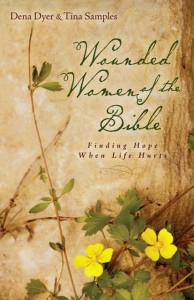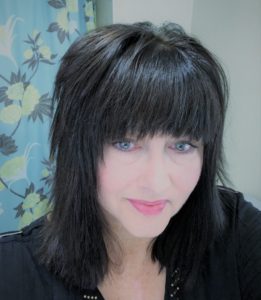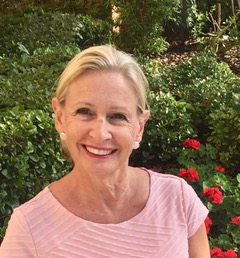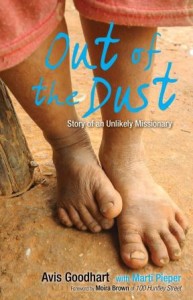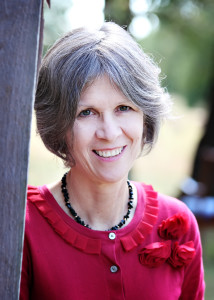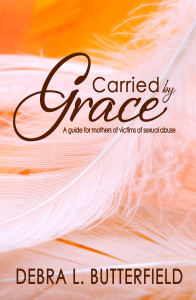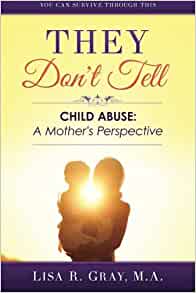 WITH WHAT’S BEEN happening in our country this last week, our hearts and minds have been taken captive by thoughts about our children and the horror some of them had to endure at the hands of a heartless and cruel individual. But our hearts also go out to the parents and the pain they’ve experienced as they try to comprehend the incomprehensible awfulness of what happened.
WITH WHAT’S BEEN happening in our country this last week, our hearts and minds have been taken captive by thoughts about our children and the horror some of them had to endure at the hands of a heartless and cruel individual. But our hearts also go out to the parents and the pain they’ve experienced as they try to comprehend the incomprehensible awfulness of what happened.
There’s another horror story some children endure and other mothers who are gripped with pain in the discovery. In Lisa Gray’s book, They Don’t Tell: Child Abuse: A Mother’s Perspective, Lisa broaches a subject that is difficult to talk about, but she shares it from the vulnerability of a mother who has experienced the pain but discovered the healing.
Linda: Lisa, I know this is a dark subject, but I believe you’ve told me the book is not about darkness, but about hope. Please tell me what you mean by that.
Lisa: I believe we need to always be reminded that even in the darkest of situations, there’s always hope because we serve the God of Hope!
Linda: So now that we’ve given away the ending – that there is hope—tell me what They Don’t Tell: Child Abuse: A Mother’s Perspective is about.
Lisa: A mother’s heart, a heart that has been broken, shattered, stomped upon, torn apart and left in utter disarray. The revelation of knowing your child has been violated by those who were “supposed” to care and nurture them is unlike any other pain I’ve ever experienced in my life!
Linda: So please tell us why you decided to write They Don’t Tell: Child Abuse: A Mother’s Perspective
Lisa: I felt the Lord wanted me to share my story, my journey back to health and wholeness for myself and my family. The book is meant for those who like me felt so alone, so isolated AND felt guilt and shame! I was supposed to provide safety, protection, and security. That was not my daughter’s experience.
I have to say I listen to Bishop T D Jakes a great deal, and I remember thinking to myself, “Why does he always talk about sexual abuse?” I know it happens. My head is not buried in the sand, but does it really happen THAT much? I mean does it happen enough to warrant him continually talking about it ad nausea? Well give me a chance now, and boy oh boy have I changed my story! Today I say. “Bishop preach!” Linda, today I understand that while I was thinking those very thoughts, I never knew that sexual abuse was happening in my own house, under my own roof, to My own daughter.
Linda: That’s heartbreaking, Lisa. Tell us how you were able to deal with it?
Lisa: Well let me assure you, it was not easy. It was a process that took time, prayer, and—if I can be honest—I’ll admit there was some self-pity, 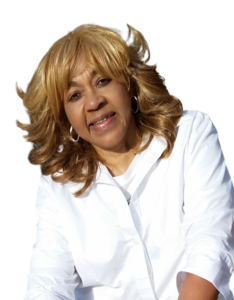 some self-loathing, and many questions of why and how could this happen. I’m a good person, I love the Lord, this is not supposed to happen to Christians like us.
some self-loathing, and many questions of why and how could this happen. I’m a good person, I love the Lord, this is not supposed to happen to Christians like us.
Linda, many times I had to fight the enemy in my mind…which is why the Lord tells us in scripture to take every thought captive…not to just sit in it, not to soak in the negativity but to fight.
There were days where I would fight with worship music, there were days when I would fight with scripture, there were days when I would fight with scriptures. I would put scriptures all around me to remind me that God was faithful. There were sticky notes on my refrigerator, my bathroom mirror, my car review mirror…because the assault against my mind was unrelenting, but only for a season.
I can say my family and my church family rallied around us also and supported us greatly through that season.
Because God is the same yesterday, today and forever we can stand on his word, and he will and does bring us through!
Linda: Lisa, that is such a powerful reminder of how to persevere through difficult times. Yes, God is faithful! What do you want readers to take away from your message in your book, They Don’t Tell?
Lisa: Linda if there’s anything I’d like for your listeners and my readers to know, I want to remind them that the enemy comes after our faith, and our resolve to judge the Lord faithful…even in the storms of life. He really wanted me and others to walk away from the Lord and curse the Lord because of the trial and the storm. I would never do that. I understood that our LORD is faithful through every trial, every storm. And I understood my children, my family, my church family, even the community was looking to see how I was going to handle this. Instead of running from God and to alcohol, drugs, gambling, shopping, food, whatever vice we use as false refuge, when the Bible clearly tells us the Lord is our strong tower, we run to him and are safe!
Run to him, Run to the throne of grace and plead for Mercy, judge the Lord faithful throughout all the circumstances. His mercies are new every morning, for you and your family!
Linda: After this terrible incident of child abuse happened to you and your daughter, where are you now in life? And how is your daughter?
 Lisa: This is myself and my daughter Nikki now—after the storm, after the hurt, after the trauma, after the healing, and after restoration has taken place in both of our lives. We are better, stronger, more resilient, and determined that what we went through others can go through as well and survive! We walked this out together, and now are compelled to open up our lives and hold our heads high because like any of you who’ve experienced this—we have nothing to be ashamed of!
Lisa: This is myself and my daughter Nikki now—after the storm, after the hurt, after the trauma, after the healing, and after restoration has taken place in both of our lives. We are better, stronger, more resilient, and determined that what we went through others can go through as well and survive! We walked this out together, and now are compelled to open up our lives and hold our heads high because like any of you who’ve experienced this—we have nothing to be ashamed of!
Linda: Has this experience of dealing with child abuse taught you anything new or transformed your thinking in any way?
Lisa: The Lord has taken me into a new area for me, one I never truly understood, but now I do. Generational curses. Although we don’t realize it, we actually have understood them along certain areas of our lives because every time we go into a medical facility they want a breakdown of our medical history. Well, Linda, hidden in those familiar medical patterns are the generational iniquities that have been repeating throughout our generations. Now I work with individuals and families to uncover, and uproot those patterns—of cancer, heart disease, brokenness, sexual immorality, etc. My website is : Bloodline Curse Breakers.com. I can also be reached through email at kidsdonttell@gmail.com or by phone at 1 (202) 810-5687.
Linda: Do you have any final thoughts to share:
Lisa: Yes, this was a HORRIBLE situation, but when we give it to God, trust him, lean on and into him through the process, he will turn it around for our good. His word cannot return to him void, and what the enemy meant for bad, God turns it around for our good.
Now I get the opportunity and the honor to share God’s word and his redemption all around the world. My daughter is well and flourishing, and my ex-husband is serving a prison term of 15-40 years for the violation.
Linda: Where can people find your book, They Don’t Tell: Child Abuse: A Mother’s Perspective?
Lisa: The best place to find the book is on Amazon or they can reach out to me at the above email. You can also find out more about me and my book on my website at bloodline cursebreaker – Author counsellor speaker
